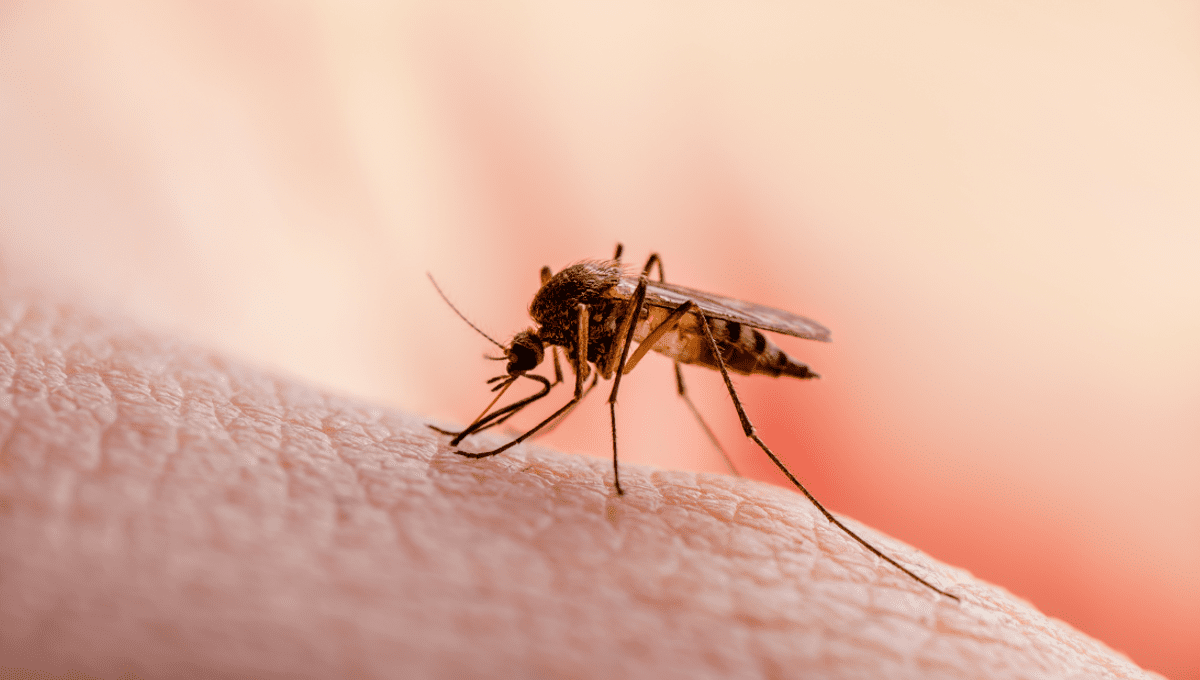
Mosquitos seem to have a taste for some humans but not others. Sit outside for drinks come sunset and some people will end up polka-dot-skinned while others walk away scot-free. Exactly why this happens has been a subject of debate, with blood type, genes and sweat being touted as drivers. New research suggests that the acid composition of your skin could be the deciding factor.
Human skin odor is decided by a blend of organic compounds – the exact recipe for which we still don’t know for sure, nor do we know how it can change over time (though old people smell is a thing). Most people are familiar with the scent of body odor which can exude from places like our armpits, but what about the less obvious smells along the areas of our body that are more prone to insect bites?
To find out, researchers collected human skin odor samples by getting humans who got bitten by mosquitos all the time to wear nylon stockings on their forearms. They then did the same for a group of lucky so-and-sos who hardly ever got bitten by mosquitos so they could compare the odor of people who were either attractive or unattractive to mosquitos.
Their results revealed that a person’s attractiveness to mosquitos was sustained for months and was associated with an abundance of carboxylic acids, a group of organic acids that contain a carboxyl group. This finding ties into earlier mouse studies which found that infection with malaria can cause an uptick in similar compounds, increasing the attractiveness of the mice to mosquitos.
“Highly attractive subjects produced significantly higher levels of three carboxylic acids—pentadecanoic, heptadecanoic, and nonadecanoic acids—as well as 10 unidentified compounds in this same chemical class,” wrote the study authors.
“The specific blend of these and other carboxylic acids varied between different high attractive subjects. Therefore, there may be more than one way for a person to be highly attractive to mosquitoes.”
While there were desirable features in carboxylic acid terms for wooing a mosquito, there didn’t seem to be a pattern of human skin odor constituents in the “unattractive to mosquitos” group. This would indicate that a person can have mosquito attractants, increasing their risk of getting bitten, but there don’t seem to be any mosquito repellents that could help keep a person bite-free.
While a curious insight into why some people get eaten alive by mosquitos while other human blood bags simply breeze through unharmed, the study authors note that there’s not yet sufficient evidence to pinpoint carboxylic acid abundance as the causal factor in our attractiveness to mosquitos. The only way to do this would be to somehow remove carboxylic acids from the skin of someone known to be attractive to mosquitos. Unfortunately, the researchers say this isn’t technically feasible.
However, the research is a step towards understanding why some people get bitten by disease-carrying mosquitos, and thus, a step closer to finding a way to help prevent bites and curb the spread of dangerous illnesses.
“The attraction preferences of disease-vectoring mosquitoes have important public health implications, since it is estimated that in disease endemic areas a small fraction of humans is more frequently targeted, and these individuals serve as a reservoir of pathogens,” concluded the study authors.
“Understanding what makes someone a ‘mosquito magnet’ will suggest ways to rationally design interventions […] to make people less attractive to mosquitoes. We propose that the ability to predict which individuals in a community are high attractors would allow for more effective deployment of resources to combat the spread of mosquito-borne pathogens.”
The study was published in Cell.
Source Link: Always Getting Bitten By Mosquitos? This Contributor To Your Skin’s Odor Could Be Why